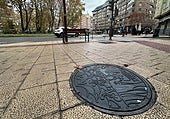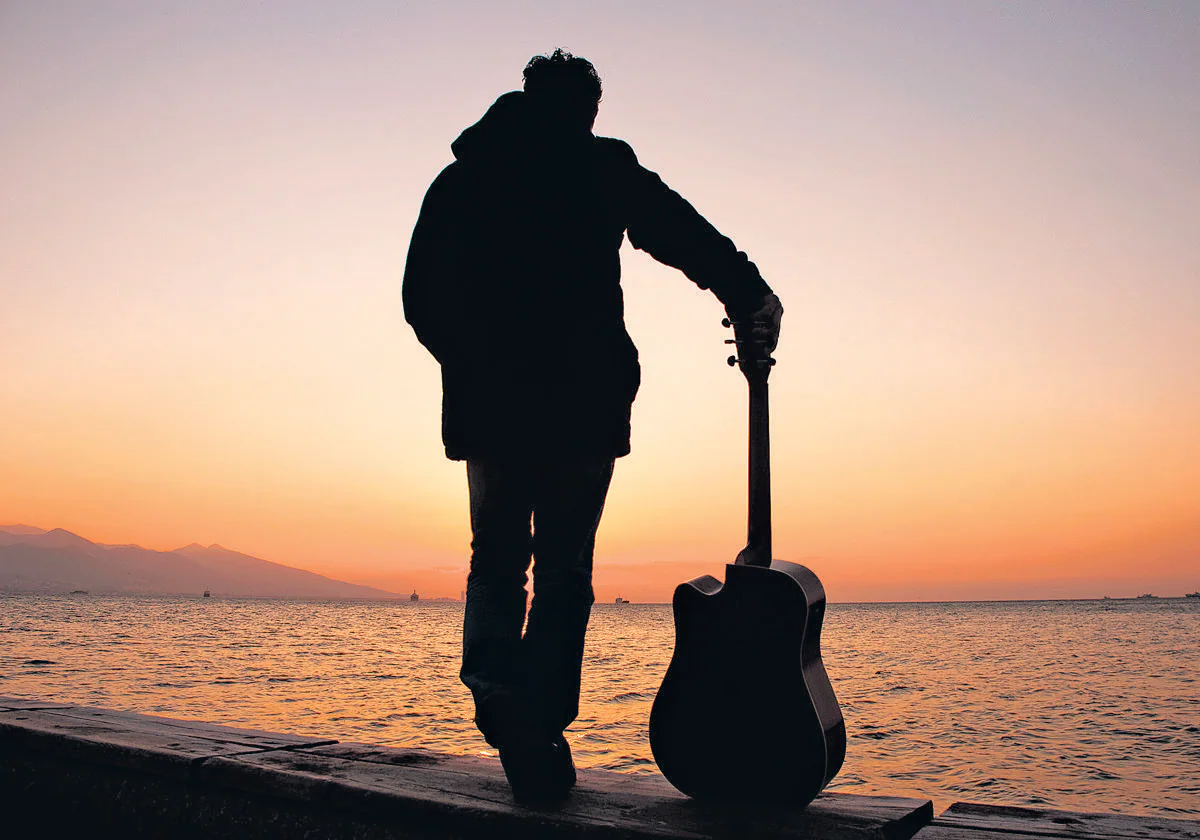The Precarious Life of Musicians
Love for the Art. Only 2% of singers succeed thanks to record label promotion. The rest of the performers and creators struggle to be heard. Half do not reach the minimum wage.
Doménico Chiappe
Madrid
Saturday, 16 November 2024, 13:50
Life on the road begins at seven in the morning. Musicians board the van, travel for hours to the city where the concert will be held. Arrival at the hotel, sandwiches, sound check, burgers, and concert. "It's not very healthy," says Juan Sebastián, a 32-year-old pianist who toured for several years with artists from other musical genres who filled venues with tens of thousands of people at summer festivals. "It's like going camping with your mates but you're working. It's many hours of life. They pay you for the concert but you spend fourteen hours a day."
The amount of money a performer takes home depends on whether "the bosses pay a fair amount. The more they say they love music, the worse they pay." The usual fee ranges from 350 to 500 euros per gig, depending on the audience size: if there are 15,000, the first option; with 40,000 tickets sold, the second. The size of the band also matters, which can have four or twelve musicians. "From the moment you leave your house until you return, you earn about 20 euros gross per hour," calculates Juan Sebastián. "You shouldn't charge less than 800 per concert at a festival."
Live performance is the "main economic refuge for musicians" but more than half do not reach the minimum wage. Sixteen percent do not even reach 6,000 euros annually, and another 27% do not reach 12,000, according to the 'Sociolaboral Study on Musicians in Spain', conducted by the Society of Performing Artists (AIE). One in seven euros they earn comes from concerts, and the rest from royalties and what record labels and online platforms pay. "We are survivors of job insecurity," says Juan Sebastián. "Moreover, the profession is undervalued and underpaid."
Dedicated exclusively to music, Juan Sebastián is part of the majority who pursue their artistic activity as their main occupation (70%, says AIE). With two jazz albums released ('Lluvia de mayo' in 2012 and 'Tribute' in 2017), Juan Sebastián (INSERT WEB) claims he records them "at a loss" and that streaming royalties are not enough to record another album. "Through teaching, which most of the guild dedicates to, many of us cover that part. Platforms pay very little because jazz has few views. I don't do a lot of numbers. But I know I made more money selling CDs. For the 'underground' it was more profitable, but the exposure was less. Money comes in many ways. I still haven't achieved economic success," maintains Juan Sebastián.
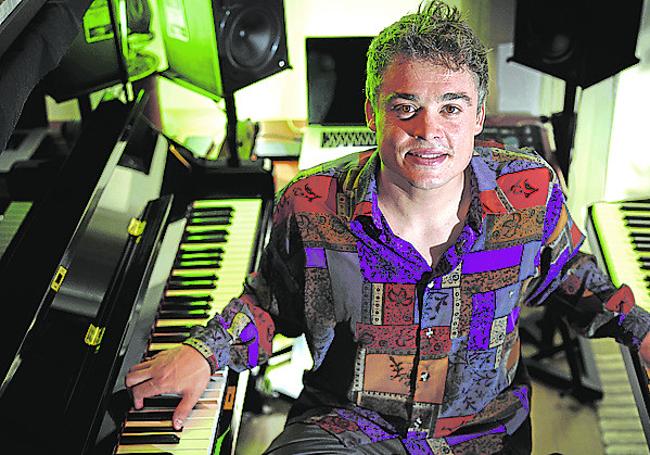
"Playing my own music in venues is very enriching"
"Now tourism ends the conversation that existed between the audience that wanted creativity and the artist who was in a process of study and transformation of musical language. Entertainment is very voracious, an experience is sold, someone dressed as 1920s swing, while you dine something from a top chef. For me, it's an aberration. Instead, a jam is a musical gathering, to share."
"Playing my own music in venues is very enriching. There may be moments with more or less audience, but I have always received a lot of love from the audience and the musicians I have played with. Many times I have presented projects that have not resulted in albums, it is very difficult. There are many factors for your own project to be profitable. I have been close to it happening, but it never happened."
Why invest several thousand euros in an album then? "The album is necessary to say who you are," responds Juan Sebastián. Only 2% have ties with a major record label, and 84% have no contract with labels.
With musical training from the age of four in Ibiza, Astrid Canales was a viola concert performer in orchestras at twelve and graduated from a German conservatory at eighteen. In that country, she had her first jobs as a singer. Her musical paths led her to neo-soul, a genre that fuses electronic, gospel, jazz, and hip hop. "I chose a path that is neither easy nor quick, my own project, with my compositions and where I produce everything. You have to deal with a lot of patience and keep working. Meanwhile," explains Canales, 28, with works like 'Amantes' and 'Tan salvajes'. "Now I teach, I am a composer, producer, and arranger, others hire me to make the scores they will play in concerts or recordings."
Freedom and Vocation
Astrid Canales is part of that 69% of "multi-employed" musicians, according to the AIE study, based on a survey of more than 1,600 members conducted in 2023. Most combine instrument performance with teaching; they work in related activities such as sound technicians, managers, or producers; or are in two to five bands, with six out of ten playing about 40 concerts on average, and a tenth playing one day out of three.
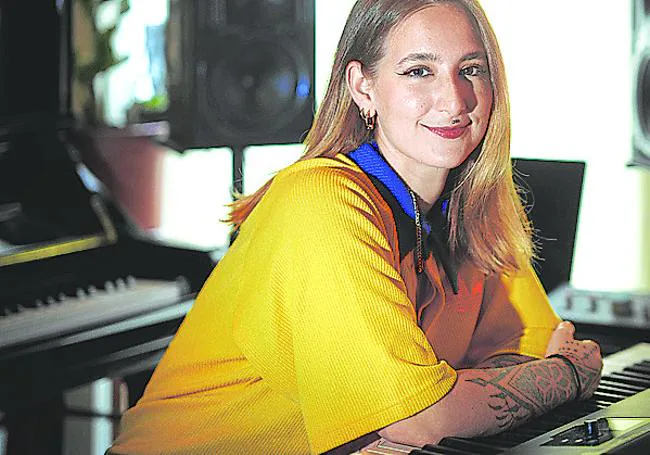
"Consistency in this career is absolutely essential"
"Few lucky ones can finally achieve what all musicians want: to live from performing and have a secure quality of life. Almost all the others need the support of pedagogy to have good conditions and rights."
"We have to accept that not all of us can reach success. There are so many of us and so many means of exposure that the competition for attention is very strong. But I want to think there is a ray of hope and that those who work tirelessly achieve it."
"I will go on tour in 2025 with my new album and a new band. It's the first after becoming a mother. During this time, I took a break and recorded 'Abrazarte' (an album of Latin American romantic song covers) for pleasure. Consistency and patience in this career are absolutely essential."
In the sector, there is also a wage gap: women earn 13% less than men, according to the study. "Freelance performers are quite left to their own devices," warns Canales. "If we don't want to be teachers, our situation is risky, we hang by a thread. Gigs are usually paid with an invoice, without performance contracts, without registration, and as self-employed with a crazy fee."
Despite the negative economic aspects, such as that upon reaching retirement age, performers have an average of only 18 years of contributions, that "predominantly day-to-day contracts prevail," says the AIE, that temporality increases year after year and that only two out of a hundred have a contract with a major record label, there are reasons to persist in professional music. "Freedom, for me, is fundamental," defends Juan Sebastián, who is preparing a third album titled 'Ten Songs'. "Thanks to choosing music, I have a lot of time for myself, to raise my daughter, to dedicate myself to creating and composing with a high dose of spirituality, understood as dialogue with yourself. I don't want to be a slave to the system. Humans only have time."
Playing Live
Some musicians work in hotels or on ships, with a fixed repertoire all year round. Others with various gigs and sometimes without rehearsing, relying on skill and sheet music. A show programmer estimates that 90% of singers and groups, even international ones, do not fill a venue with a capacity of 800 people. Of those, more than half do not reach a hundred tickets sold at about 20 euros each. Weekday nights are tough, even in capitals. "Every night I do something different," says Francisco López, better known as Loque. He is 50 years old and has more than three decades in the music scene, although he started "quite late and by chance. Things got tangled up, and I got up to speed."
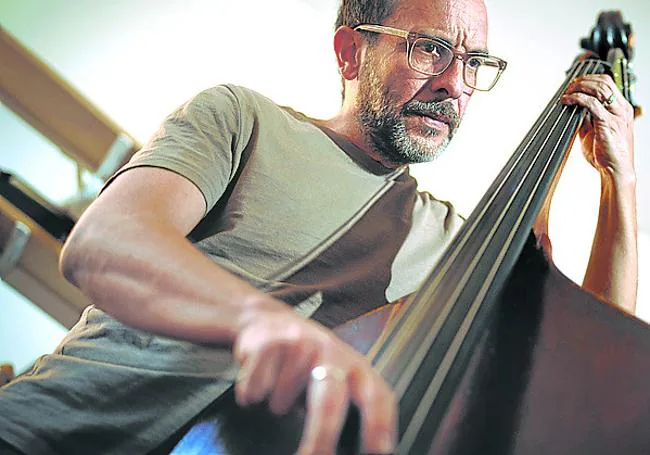
"Now originality is valued more, but earnings are less"
"The profile of the musician is different. Now there is better training and the offer has grown, but demand has decreased. Some time ago, this was a trade where you had to be available for whatever came up: recordings, concerts... Now it's more about being an artist, who has to launch their own projects. Originality is valued more, but earnings are less."
"Venues pay the same as years ago, which, imagine the scenario. Moreover, many typical places where music was always played have closed because the real estate market makes it impossible for them. Bars make less money. There is pressure towards another type of business in city centres."
"However, I do see young people going to small venues and still enjoying live music. It has its value despite the digital age. I believe artists of any genre will have to find their places on the outskirts of cities."
In all these years, "the demand for live music has changed a lot in form, substance, and quantity. It went from small venues, and there used to be many more, to macro-events. It's general: festivals work," summarises the double bassist Loque. Clubs and venues "are struggling. They are not festivals," assures Juan Sebastián, who first performed in a small club in Miranda del Ebro while studying at Musikene, the Higher Centre of Music of the Basque Country where he graduated.
He was 19 when he presented his first album in venues and festivals, and he has given hundreds of concerts. "I know Spain from north to south," says the pianist, who now also gives private lessons in piano, harmony, improvisation, and composition. Sought after as a pianist by other musicians from different genres, from flamenco to pop, among his memories is a night at the Palacio de Lira with the Duchess of Alba and the days as a resident at Blue Note. "Live performance has an exciting aspect, which is the contact with the audience. It is rejuvenating and, at the same time, I feel the responsibility to offer people what I know how to do."
Transformations
In a fortunate week this year, Loque can play five days "in everything that comes up, when years ago it was usual to play every night for three weeks straight. I don't teach, it's not usual, but I've managed life needing little. No car, no mortgage. But every day it is more difficult to live from this." In a jam session, he can earn less than a hundred, in another more than 300. That week he made 600 euros gross and moved around by metro with his instrument or on foot. The last night, already tired, he used an electric car from carsharing.
Among these transformations is the digital one. The way music is offered as a product. Before, when someone was asked what they were listening to, they would respond with the name of a band or soloist. Now they pronounce the platform's brand. In this context, musicians find the cracks to maintain their enthusiasm. "To stand out, an artist is very conditioned by social media," says Astrid Canales, whose latest album is titled 'Abrazarte', an interlude in her career while becoming a mother.
She recorded it with Juan Sebastián. It's a constant in the profession. Their lives intersect. They often share the stage with each other, although affinities then bring them together more or less. "Your CV today is your profile. If I post a 'story', they call me to give lessons. The jobs I have are thanks to Instagram. The internet is the great fantastic showcase that increases competition among artists. There are those who don't play or sing very well, sometimes you don't even need to do it. But if you're a musician, you want to make music and not digital marketing."



